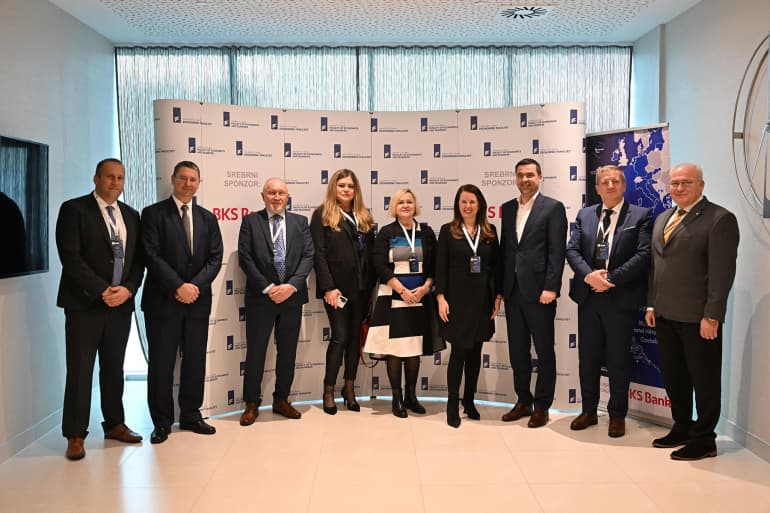Since adopting the euro, the foreign exchange risk has decreased, transaction costs have been eliminated, interest rates have been relatively reduced and crisis resistance has improved – these were the conclusions of the “Croatia in the Eurozone and Schengen Area – a Look Back on the Past Year” panel, where managers from renowned Croatian companies discussed the impact of integration on business competitiveness.
The EFRI Economic Council and the Croatian Economic Association organised an interesting programme where they presented the advantages and challenges of joining the Eurozone and Schengen area, with a focus on Croatian sovereignty and monetary policy in the Eurozone.
Mislav Vučić, Member of JGL’s Board of Directors, said that Croatia’s entry into the Schengen Area and the Eurozone has brought numerous benefits to the business community, but he also warned of the increasing pressure on the competitiveness and productivity of the national economy, which cannot survive without manufacturing and export companies.

“Managing a company in VUCA (Volatility, Uncertainty, Complexity, Ambiguity) times requires agility, flexibility and adaptability. Our JGL ORION strategy is based on three global megatrends and enables us to respond in a flexible and innovative way to frequent crises, sudden changes in the market, and increasing customer expectations. Our strategic priorities are a stronger focus on the most profitable existing sources of revenue and innovation in planning new ones,” said Mislav Vučić, CEO of JGL, during the panel discussion, emphasising the importance of highly skilled workers in initiating innovations and creating new values, and therefore in the competitiveness of the country’s economy.

“One of the barriers to stronger growth of high-tech companies in Croatia is certainly the tax burden on the salaries of highly skilled personnel that is still too high. Such a tax policy reduces the capacity to retain and attract talent in Croatia, which is something we have been struggling with for decades. Reducing the tax burden is not only a matter of a fairer distribution of taxes, but also a strategic move that can ensure better prospects for the entire economy,” said Vučić.

The panel, moderated by Darko Tipurić, Chair of the Croatian Economic Association, also included Irena Weber, CEO of the Croatian Employers’ Association, Ivana Gažić, Chair of the Management Board of the Zagreb Stock Exchange, Zvonimir Viduka, Director of Altpro d.o.o., and Ivo Markotić, member of the Management Board of eLog d.o.o. Introductory presentations were given by Michael Faulend, Deputy Governor of the Croatian National Bank, and Zvonimir Savić, Economic Advisor to the Prime Minister of the Republic of Croatia.



